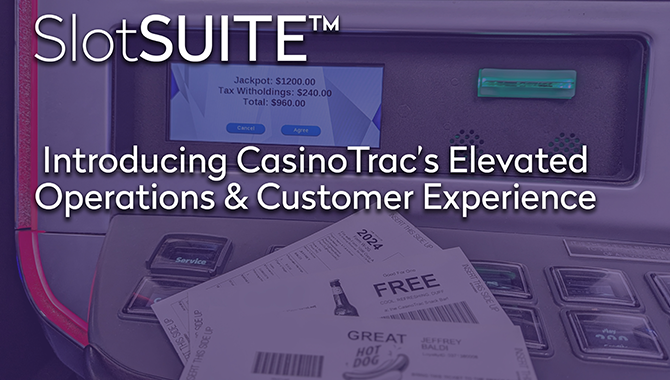
CHRISTOPHER JUSTICE - President, Global Payments Gaming Solutions
Christopher Justice is a veteran leader in the world’s payment and commerce industry. Spearheading Global Payments’ Gaming Solutions division, his 25-plus-year career spans executive leadership roles at organizations such as CenPOS, Century Payments, Ingenico, Merchant Link and First Data.
TODD HAUSHALTER - Chief Product Officer, Evolution
Todd Haushalter has been Chief Product Officer at Evolution since 2015. Todd oversees all aspects of Evolution’s games and product development. Having previously worked as Corporate Vice President of Gaming at MGM Resorts and as Vice President of Business Strategy at Shuffle Master, he has a wide and varied knowledge of the casino industry.
DAVID FORMAN - Vice President, Research, American Gaming Association
David Forman serves as Vice President, Research at the American Gaming Association. Forman leads the AGA’s research efforts and partnerships across the full spectrum of issues affecting the gaming industry, including taxation and economic issues, sports betting, responsible gaming, consumer perceptions, and regulatory matters.
BRIAN WYMAN - Senior Vice President, The Innovation Group
Brian Wyman, Senior Vice President at The Innovation Group, is an executive with over 15 years of experience transforming data into actionable intelligence, insights and bottom-line results.
DAVID LUCCHESE - Executive Vice President of Sales, Marketing & Digital, Everi
David Lucchese, Executive Vice President of Sales, Marketing and Digital for Everi, has worked in the gaming industry for over 15 years. Previously he was at Bally's. Lucchese is also President of the Association of Gaming Equipment Manufacturers.
IS DIGITAL GAMING ALREADY PENETRATING THE CASINO FLOOR?
Christopher Justice: Prior to the pandemic, digital alternatives to brick-and-mortar experiences were not considered a necessity, but,
rather, an opportunity to meet consumers’ evolving preferences. The ability of technology to provide services in a digital, intuitive and concierge-like environment has transformed the way all industries view the customer experience, including the gaming sector. Industry experts believe more casinos will continue to modernize their payment offerings as patrons’ needs continue to evolve. In today’s market, there is a tremendous opportunity for casinos to leverage new technology to create the digital experience many patrons now prefer.
TODD HAUSHALTER: It’s not there yet, but it’s coming. While it’s surprising that it’s taken this long to have an effect, Covid has delayed aspects of the industry’s progression. Now that we’re starting to make our way out of this pandemic environment, and especially now that North America is getting more familiar with online gaming, it will become much easier to bridge the gap between the two, and I think you will see this evolve quickly over the next five years. Success in the industry is going to look very different, player demographics will start to change, and the deciding factors for players to choose one operator over another will be centered around the idea that their favorite game is available anywhere – whether online or on the casino floor.
DAVID FORMAN: The last two years have shifted how Americans interact with our industry. Online gaming has taken off in the few markets where it’s been legalized, alongside impressive growth for traditional gaming. After a record-setting 2021, commercial gaming carried momentum into Q1 2022 by recording the industry’s best start to a year ever with $14.31 billion in revenue, nearly matching the all-time quarterly record. IGaming continued to show its growth potential as the vertical set an all-time quarterly record in gross gaming revenue. At the same time, land-based gaming nearly matched its own quarterly record, despite the traditional seasonal slowdown. Slot machines and table games are still the backbone of the commercial gaming industry. These verticals account for approximately 80% of gaming revenue nationally – more when you factor in tribal gaming – and have shown few signs of slowing down. It’s not a matter of online penetrating the casino floor. It’s about providing new opportunities to engage consumers and grow the overall US gaming business.
BRIAN WYMAN:Digital gaming definitely has a presence, and you can see this in really direct ways as well as more subtle ones. Directly, the operators of online gaming tend also to be the operators of sports betting, and since there is often co-branding of the sportsbook, there are direct advertisements for online casino on the floor. Less obviously, we’re seeing the digitalization of table games, whether in the form of e-tables or live-dealer games, such as stadium-style blackjack or some newer, less labor-intensive craps games. Combined with the proliferation of cashless, players now are becoming acclimated to depositing, withdrawing, and making decisions all digitally.
DAVID LUCCHESE:If this were a baseball game, I would say that we are only in the first inning of the intersection of iGaming and the brick-and-mortar casino space in the United States. Operators are just starting to ponder the cross-platform opportunities that having both an on-premise and online presence can present to their patron base. At this moment in time, operators are just starting to highlight the gaming options that exist in both of their spaces. Ideally this will enhance the customer experience as casinos start to cross market to drive traffic to additional site visits as well as encouraging engagement by their patron base while those gamers are not on its property.
WHAT WILL THE OVERLAP BETWEEN THE TWO LOOK LIKE AS TIME GOES ON?
Christopher Justice: For more than two years, casino operators have witnessed a rapid acceleration of digital gaming. However, providing digital alternatives to brick-and-mortar experiences will no longer be enough to meet patrons’ evolving needs. Looking ahead, operators striving to remain viable must connect online and brick-and-mortar experiences to provide patrons with a frictionless gaming experience, not only as they move from one land-based casino to the next, but across all channels. For example, Global Payments leverages an omnichannel approach, which connects VIP Mobility – our digital, cashless gaming app – to kiosks on the casino floor. This provides patrons with the digital experience they have become accustomed
to while playing on the casino floor. By harnessing the flexibility and ease of Global Payments’ groundbreaking VIP Preferred account network, plus functions like eCheck and Choice 4 deferred settlement, patrons can also transfer funds from their VIP Preferred balance to their favorite game, and their funds move with them from one operator to the next. After a one-time enrollment, VIP Preferred members have access to more than 400 North American, land-based and online gaming locations. The blending of physical and digital properties drives higher patronsatisfaction and puts more dollars in play with lower risk.
TODD HAUSHALTER:It’s a great question, and I think the most likely scenario is that you will see content start to flow in both directions. Players are going to want to be able access the games they love, whether they’re sitting at home on the couch or physically on the casino floor, so land based casinos are going to have to start to evolve quickly to make that a reality. Dual play is going to be a great way to achieve this and it’s something we already do at Evolution – take an already existing roulette or baccarat table game on the casino floor and stream it to players at home. This process will continue to develop as the gap between digital and land based becomes less obvious, and, as I said, it won’t just be a one-way process. Content that’s created outside of the casino, like game shows, will make their way onto the casino floor, bringing that increased energy and excitement that players will expect to see, wherever they decide to play.
DAVID FORMAN:The US industry is embracing omnichannel gaming to reach our customer base, and all signs point to brick-and-mortar and digital gaming continuing to complement each other as time goes on. Before iGaming became legalized in certain markets, casinos were only able to interact with guests during in-person visits to their properties. By integrating online gaming, players can engage with the casinos how, where and when they want. This provides more insight into player behavior, which in turn can improve the experience on property and online. Gaming is a dynamic, ever-evolving industry and AGA members will continue to find innovative ways to allow both their brick-and-mortar and digital businesses to thrive simultaneously.
BRYAN WYMAN: This is a really interesting question. I think cashless is here to stay, and I think e-tables and stadium-style games provide a really low-friction entry point to table games – stepping up to a craps table can be intimidating. But I also think that with the cost of cabinets being high, we may see a lot more “iGaming Lounge” type concepts, where players can sit in lounge chairs, get comped meals, and play their favorite slots on iPads. We’re already seeing similar concepts emerging on the sports side, and as tavern gaming proliferates, we’ll see more of a push for low-cost bartop devices (such as tablets) as well.
DAVID LUCCHESE: As time goes on, it would make sense that operators will go far beyond offering the same slot titles and casino game options in their online casino that they currently have in the land based casino. The next logical step would be to create their promotions to be available in both casino options. Allow patrons to earn reward points, drawing entries, and promotional offers through cross-platform play. The guest of the future will expect to a similar gaming experience, regardless of the way that they play. Whether from the way that they access funds in a cross-platform casino wallet, to the games they chose to play, casino patrons will likely flock to the operators that bridge this new divide.
DO LAND-BASED OPERATORS HAVE MUCH TO FEAR AS A RESULT OF THE RISE OF DIGITAL GAMING?
Christopher Justice: Land based operators should not fear the rise of digital gaming, especially if they implement solutions that provide patrons with a seamless gaming experience across all physical and digital channels. Furthermore, some gaming technology providers are engineering their solutions to strengthen back-office operations for operators in addition to enhancing the gaming experience for patrons. Global Payments’ VIP Mobility provides several benefits to operators, including reduced anti-money laundering exposure, improved performance metrics and limited implementation costs. Additionally, VIP Mobility does not require additional technology certifications on the floor, creating a simplified transition to cashless, digital gaming. By embracing system-agnostic solutions, like VIP Mobility, casinos can tap the flexibility needed to offer digital alternatives to traditional forms of funding, minimize operating costs and meet patron expectations.
TODD HAUSHALTER:In a word, yes. Just about every industry that saw a big online presence emerge took a hit, whether it be the travel or retail industries – and when you have a streaming giant like Netflix taking a subscriber hit for the first time in its history, you know that the digital race carries risks. At the same time, there’s a symbiosis between the digital and the casino floor. They’re not meant to be at odds with each other, they’re partners. As one grows, so too should the other. It’s realistic to expect that casinos will soon be driven to enhance their offerings, giving people who can just as easily experience a casino game on their phone the incentive to get in cars and drive to a casino.
DAVID FORMAN: If the last two years have taught us anything in the gaming industry, it’s that the perception that growth can only be driven by one gaming vertical is antiquated. During the years following the pandemic, both online and traditional casino gaming are thriving, and the overall revenue pie is growing. IGaming and online sports betting regularly produce the largest percentage of revenue growth, but that should not come as a surprise. Retail gaming is a mature market in most states and consequently has less room to grow. There is no reason to think iGaming and traditional casino gaming cannot coexist to the benefit of the overall gaming industry.
BRYAN WYMAN: Well, I always tell people that television didn’t kill live sporting events, and there’s absolutely nothing like holding a pair of dice.
I would say land based casinos may lose revenue over the long-term as players adopt online platforms. However, the operators may ultimately be granted those online licenses as well. I worry about tribal exclusivity and how that will extend to the online space. Already we’re seeing major pushes for teams, tracks and other commercial entities to be licensed for sports betting in markets where tribes have exclusivity agreements with the state. So overall, no, I think vertical integration will ultimately keep most of the online revenue within the casino community, but I do think there will be some cannibalization of gaming revenue at land-based casinos, and I’m not sure that tribes in particular won’t be damaged.
DAVID LUCCHESE:On the contrary, I believe that land-based operators have everything to gain by the adoption of the digital gaming space.The operators that fear this change without embracing the new opportunities that iGaming will provide will likely struggle as this transformation continues to spread across additional regulated markets. The opportunities to engage with your guests multiply as you extend the reach of the casino onto the phones and computers of your patrons. It would be wise for casinos to embrace adding their mobile applications onto their patrons’ phones as the additional access will allow for opportunities to grow revenue and to strengthen their patron loyalty.
IF DIGITAL GAMING APPEALS TO YOUNGER GENERATIONS, WILL ITS INTEGRATION HELP BRING IN YOUNGER CROWDS?
Christopher Justice: The implementation of digital solutions has helped several businesses in other sectors attract younger generations, and we are seeing the same trend in the gaming industry. Digital solutions enable patrons to fund their play via their smart devices and skip the long lines at the cage, which is a major pain point in the gaming industry for many casino guests. Operators who implement digital solutions will most likely see younger crowds visit their casino. However, digital solutions should be easy for all patrons to use, regardless of their age or technology skills. Patrons often use words such as “easy” and “fast” when describing VIP Mobility, which is why the solution has maintained a five-star rating within the app store.
TODD HAUSHALTER: It’s going to be a big help. There’s already so much choice within the industry, so many operators competing for a player’s valuable time. Prioritizing player loyalty is key, and a big part of that is recognizing where, how and why their needs might be shifting. As the gap between land-based and digital gaming shortens, players are going to expect to be able to play their favorite games both online and in the casino and have things like their loyalty rewards move seamlessly between the two. Land-based casinos should be shouting their digital integration from the rooftops; it’s going to help embolden their brand and keep them relevant with the younger generation. The casinos that are unable or rather unwilling to deliver this – well, they’re going to miss out on a whole new generation of player.
DAVID FORMAN: As the gaming industry continues its recovery, casino visitor demographics have shifted toward a younger audience, even
at brick-and-mortar properties. The average age of a casino patron dropped to 44 years-old in 2021 from around 50 years-old in 2019. While
the pandemic certainly has played a role in this, the data seems to indicate this is an ongoing trend and gaming’s customer base has becomeyounger. IGaming has the unique ability to demonstrate gaming’s appeal, value and excitement to younger consumers who expect to interact with brands online. For example, a customer with an interest in sports betting or iGaming may first increase their engagement with a casino’s brand through the company’s app. The company can then leverage that digital relationship to invite the customer to visit their brick-and-mortar casino to enjoy the world-class entertainment options available there and build a broader relationship with the customer.
BRYAN WYMAN: Already we see sports betting attracting younger audiences, so I don’t think the answer is ‘no,’ but there’s a huge caveat here.
Younger generations are experience seekers, and any glimmer of hope that we have of attracting them to casinos will be short-lived if we don’t execute on entertainment, food and beverage, and resort operations. Will we, through online player acquisition, get some casino trial from people that otherwise wouldn’t have done so? Maybe, but I think it’s going to take a lot of really creative marketing to transfer an online Buffalo player to a land-based one.
DAVID LUCCHESE: Although digital gaming does appeal to a younger crowd in general, I would be remiss if I didn’t point out the overall strength in
the iGaming space across all age groups. What the older generations don’t account for in total number of users versus their younger counterparts, they more than make up for in their gaming activities and their significantly higher ADT. Digital gaming is a great entry point for the newer and/or younger gamer as well, who can experiment with the different gaming options from the comfort of their home. The intimidation factor of an unknown ame can be easily bridged.
WHAT CHALLENGES WILL DIGITAL GAMING ON THE CASINO FLOOR FACE IN TERMS OF RESPONSIBLE GAMBLING?
Christopher Justice: Digital gaming has made access to money easier than ever for patrons, but that convenience has also created a heightened awareness surrounding responsible gambling. Many patrons have expressed concerns about exceeding their spending limit because they are worried they won’t have the same degree of control with digital and cashless payments. The reality is that these more technologically advanced forms of funding bring with them more advanced and impactful controls that can be put in place by those that feel they may need them. To ensure patrons are playing responsibly, operators should implement solutions that incorporate responsible gaming measures. For example, Global Payments’ VIP Mobility provides additional layers of consumer protection while fitting within existing gaming regulations. The solution incorporates the latest responsible gaming measures, including configurable spending limits, pre-set cooling off periods, self-exclusion and more. Looking ahead, operators must ensure the digital solutions they implement encourage patrons to play responsibly.
TODD HAUSHALTER: Our industry does a really good job at recognizing the seriousness of responsible gambling, and this transition to digital gaming may bring new challenges to land-based casinos, but they are very good at addressing this issue. Identifying high-risk playersand offering support, guidance and access to the right materials to help is something the industry takes very seriously. Regardless of whether it is a table game, a casino, a slot, or a digital embodiment of a product, we need to remain vigilant and make it easy for those who are experiencing problems to get help as quickly as possible – and none of that responsibility is going to get lost in a digital translation.
DAVID FORMAN: Digitalization is a welcome development for the gaming industry when it comes to responsible gaming. For many years, casino floors have been one of the few places in this country where transactions are conducted using cash. The health and safety concerns that arose during the pandemic accelerated the introduction of digital payments on the casino floor. Now available at casinos in 11 states, digital payment options provide customers with more tools to wager responsibly. When processing payment through an app or digital wallet, players can set limits on the time they spend gaming, the total amount they bet or individual wager amounts, and how quickly they want to play. This also helps customers manage their limits from online to the physical casino floors, where they are paired with the casino’s highly-trained staff and other responsible gaming protocols. Payment modernization also allows for gaming companies to enhance their already robust anti-money laundering efforts.
BRYAN WYMAN:I think online play really has a few unique aspects when it comes to responsible gaming. On one hand, online play – at your fingertips at all times and in all mental states – feels intuitively more at-risk for problem gambling. Fortunately, there are some really smart folks out there studying the actual propensity for PG in online environments and whether it differs materially from land based. There are a lot of great people leading mitigation efforts. And for its part, I think the industry takes this work seriously, dedicating staff and millions of dollars annually toward PG mitigation and research. But while online gaming feels inherently more risky, digital games enjoy the benefit of 100% data transparency. Data science teams can see the results of every spin. They can measure the rate of play, the rate of loss, the rate of near-misses. They can intervene when they begin to identify player patterns that look like they could be problematic. They can allow players to set time and wagering limits. There’s a whole host of reasons that the improved data and technology may actually render online gaming less risky than land based. But it is indeed still nascent at the moment, and we’re all learning as gaming continues to evolve.
DAVID LUCCHESE:Anytime a new form or location of casino gaming is presented to the public, there needs to be a focus on responsible gaming. With iGaming options being available in the comfort of your home, this is even more important. By digitizing the gaming experience, it will become easier to both monitor activity as well as create limits or self-excluding. By turning the entire experience digital, operators can aid patrons with real time velocity limits and prompt a patron to receive the help that they may need. The digital space allows for complete control of the experience and the added benefit of intervention when needed, and it will be an obligation of operators to aid their guests in this fashion as iGaming continues to grow and expand.
















